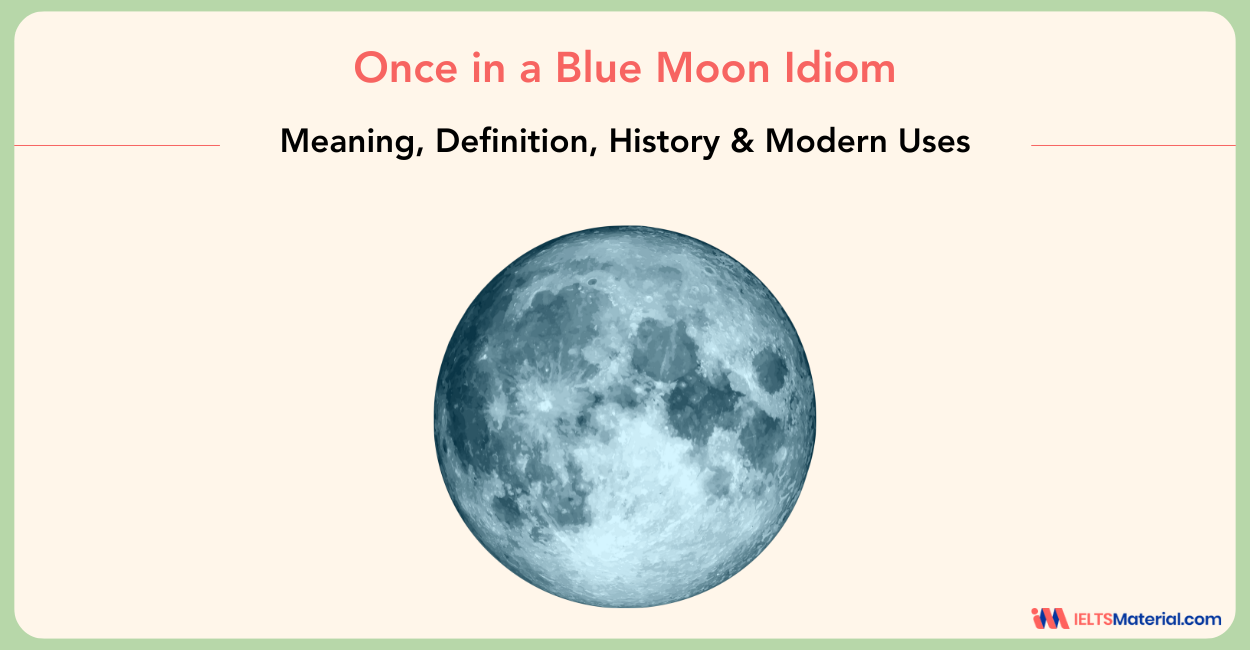Stuck in a Rut – Idiom of the Day for IELTS
6 min read
Updated On
-
Copy link
The idiom ‘stuck in a rut’ means to be in a boring situation, with no hope of excitement or future prospects. Learn its meaning and origin in this blog & explore examples and exercises designed to help you use it appropriately in the IELTS Speaking exam.
Table of Contents

Limited-Time Offer : Access a FREE 10-Day IELTS Study Plan!
The English idiom ‘stuck in a rut’ is frequently used in conversations about lifestyle, routines, work-life balance, and personal development. Using such idioms appropriately can enrich responses for students preparing for the IELTS Speaking test, especially when discussing daily habits, motivation, or life changes.
In this blog post, we will explore the meaning, origin, and usage of the idiom ‘stuck in a rut’, and provide examples for IELTS Speaking and Writing.
Stuck in a Rut Idiom: Meaning
According to the Cambridge Dictionary, ‘stuck in a rut’ is defined as ‘too fixed in one particular type of job, activity, method, etc., and needing to change’.
In other words, to be the stuck in a rut idiom meaning is to feel trapped in a monotonous, unchanging routine, often one that is unfulfilling, repetitive, or difficult to break free from. People in this state usually feel like they're not making progress in life, career, or relationships.
Do you find it challenging to learn vocabulary on your own?
Join our IELTS online classes and boost your preparation for FREE!
Stuck in a Rut Idiom: Examples in Everyday Usage
The idiom 'cut things fine' is commonly used in the following ways in everyday speech:
- I’m really stuck in a rut in this job. I think I’ll look for something new.
- Since Rose divorced her husband, she has been being stuck in a rut.
- Many students feel stuck in a rut because they can’t find a job after they graduate
- After doing the same job for five years, I felt stuck in a rut and wanted to change careers.
- Many people get stuck in a rut because they’re afraid of stepping outside their comfort zone.
- Exercising helped me break out of the rut I was in last year.
Stuck in a Rut Idiom: Real-World Applications of the Idiom
Understanding this idiom is not just useful for the IELTS exam. It is common in English-speaking media, workplaces, and self-help literature.
- TV Shows: Characters feeling discontent often say, “I’m stuck in a rut.”
- Podcasts/Interviews: Personal growth experts frequently mention the idiom when talking about breaking bad habits or making life changes.
- Articles/Blogs: Articles on burnout or career transitions often use it to describe emotional or motivational stagnation.
Origin of the Idiom ‘Stuck in a Rut’
The phrase ‘stuck in a rut’ comes from the literal idea of wagon wheels or carriage wheels becoming lodged in deep tracks (called ruts) formed on muddy or unpaved roads. Once stuck, the wheels could not move easily, forcing the vehicle to stay on the same repetitive path unless external force was applied.
This metaphorical usage began to emerge in the 19th century, when people started to describe life routines as similar to these grooves, hard to get out of, even when you want change.
Stuck in a Rut: Similar Idioms and Expressions
Given below are some expressions and useful idioms for IELTS Speaking to score band 8.0+ that are similar in meaning to the idiom, stuck in a rut.
|
Idiom / Phrase |
Meaning |
|---|---|
|
In a slump |
Feeling down, unproductive, or uninspired |
|
On autopilot |
Going through the motions without thinking |
|
Same old, same old |
Nothing has changed; everything is monotonous |
|
In a funk |
Being in a state of low motivation or sadness |
|
Going through the motions |
Doing things without enthusiasm or real engagement |
Are you having difficulty improving your vocabulary for IELTS?
Stuck in a Rut Idiom: Detailed Usage in IELTS Contexts
The stuck in a rut idiom is especially useful when responding to questions about daily routines, work habits, life goals, or change. In IELTS Speaking, it shows the examiner that you can use natural, idiomatic language to discuss complex emotional or lifestyle experiences.
While idioms must be used sparingly and appropriately in formal writing, ‘stuck in a rut’ can be effective in IELTS Writing Task 2 essays that deal with lifestyle choices, job satisfaction, or mental health. Let’s examine how this idiom fits into key IELTS topics:
IELTS Speaking Part 1 – Daily Routine
Q: Do you follow the same routine every day?
A: Yes, most days are pretty similar. I wake up, go to class, study, and sleep. Lately, I’ve been feeling like I’m stuck in a rut, to be honest. I think I need to make some changes.
IELTS Speaking Part 2 – Cue Card (Describe a time when you made a lifestyle change)
A: Last year, I realized I was stuck in a rut. I was doing the same things every day, and life felt dull. So I started learning photography and joined a local hiking club. It really helped me break the cycle and feel more alive.
IELTS Speaking Part 3 – Discussion (Work and Motivation)
Q: Why do some people feel unmotivated in their jobs?
A: I think it's because they get stuck in a rut. Repeating the same tasks without any challenge or purpose can make people lose interest in their work.
IELTS Writing Task 2 (Lifestyle Essay)
Question: Some people believe that changing jobs regularly is beneficial, while others think it’s better to stay in one position long-term. Discuss both views and give your opinion.
Excerpt Using the Idiom:
Although job stability offers financial security and peace of mind, staying too long in the same role may cause individuals to become stuck in a rut, leading to reduced productivity and lack of motivation. Therefore, occasional job changes may refresh one’s outlook and foster personal growth.
Stuck in a Rut: Practice Exercises
The exercises below will help you learn the correct usage of the idiom ‘stuck in a rut’, allowing you to understand its meaning and application.
Exercise A: Choose the option.
1
The sentence below contains an error in idiom usage. Rewrite the sentence correctly.
“After graduating, I’ve been in a rut stuck.”
2
Rewrite the sentence using the idiom: “She was bored of her daily life and wanted to make a change.”
Exercise B: Choose the option that best explains the meaning of the idiom in the given context.
1 “After months of doing the same workout, I feel like I’m stuck in a rut.”
What does the speaker mean?
A The speaker enjoys their workout routine.
B The speaker is bored and wants change.
C The speaker is injured.
D The speaker is too lazy to work out.
2 Which situation best describes being “stuck in a rut”?
A Trying out new hobbies each weekend
B Having a repetitive job with no chance of promotion
C Traveling abroad to learn new cultures
D Studying at a new university every semester
3 “She was stuck in a rut and decided to enroll in a yoga class.”
What can be inferred from this sentence?
A She had too much free time.
B She wanted to challenge herself physically.
C She was tired of her routine and needed a change.
D She was a professional yoga instructor.
Aiming to wow your IELTS examiner with your vocabulary?
Begin with our Vocabulary for IELTS!
Answer Key for the Practice Exercises
Now that you have completed the exercises above, cross-check your answers with the answer key below and understand whether you have grasped the ‘stuck in a rut’ idiom or not!
Exercise A
1 After graduating, I’ve been stuck in a rut.
2 She felt stuck in a rut and wanted to make a change.
Exercise B
1 B
2 B
3 C
To sum up, the idiom ‘stuck in a rut’ is highly expressive, easy to relate to, and extremely useful in both spoken and written English. For IELTS candidates, mastering common idioms for IELTS Speaking like this one can elevate your responses by adding depth, personality, and fluency. So next time you are reflecting on your routine or personal growth, remember this idiom, and do not be afraid to use it when the situation calls for it. It might just be the phrase that pushes your IELTS Speaking Band score up a notch.
Useful Links:
- The Gift Of The Gab - Idiom Of The Day For IELTS
- Cut Things Fine - Idiom Of The Day For IELTS
- Play It By Ear Idiom: Meaning, Origin, Usage & Exercises
- Let Yourself Go - Idiom of the Day for IELTS
- IELTS Accommodation Vocabulary: Useful Phrases, Idioms & Questions in IELTS Speaking
- Latest IELTS Speaking Vocabulary to Boost Your Score: Topic-Wise
- The Best Phrases to Use in IELTS Speaking
Explore IELTS Resources

Start Preparing for IELTS: Get Your 10-Day Study Plan Today!
Check out other Idioms

Haniya Yashfeen

Haniya Yashfeen
Recent Articles

Kasturika Samanta

Prity Mallick

Nehasri Ravishenbagam







Post your Comments